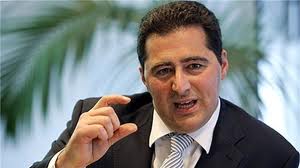By Andrew Warshaw, chief correspondent, in Mauritius
May 29 – The official charged with enforcing proper financial controls at FIFA after a spate of corruption scandals has launched an astonishing attack on Jack Warner and Chuck Blazer, the disgraced duo who led CONCACAF for the best part of a generation.
Dominico Scala, head of FIFA’s Audit and Compliance Committee – set up as a crucial part of FIFA’s reform process to make sure funds allocated by the world governing body ended up in the right hands – accused Warner and Blazer of “abusing” their respective powers and said their behaviour must never be repeated.
At a rare briefing with reporters in the build-up to this week’s FIFA Congress on this Indian Ocean island, Scala pulled no punches, saying he had already read the riot act to FIFA’s finance committee on the back of CONCACAF’s recently published integrity report which cited “fraudulent” activities by both Warner and Blazer.
Warner, former CONCACAF President and FIFA Vice President, resigned from all football matters in the wake of the 2011 cash-for-votes scandal. His image suffered a further blow when he was found by the CONCACAF report to have failed to disclose that a $25.9 million centre of excellence was built on land owned by one of his companies in his native Trinidad.
Blazer, CONCACAF’s larger-than-life former general secretary, was suspended by FIFA five days after publication of the report, which accused him of having received $20 million in compensation, mostly through commission fees, despite having no contract with his confederation from 1998.
Both men have consistently denied any wrongdoing but Scala was scathing in his condemnation of their behaviour.
“The integrity report is a horrible document,” said Scala, a 48-year-old Swiss industrialist. “Whatever Chuck Blazer and Jack Warner might say is useless and worthless. Over an extended period of time they abused the system.”
With one third of the FIFA executive committee from more than two years ago no longer in power as a result of either being kicked out or having resigned, Scala said this proved FIFA’s anti-sleaze drive was beginning to work.
“I can’t talk about the other cases because I have no insight but it is stretching it to say that what happened in CONCACAF happens in all confederations,” said the Swiss who was appointed in May last year.
“Do we have at FIFA other cases…which we don’t know about? Maybe, I don’t know. We have to be very careful not to go round accusing everybody because we have heard 10 years of accusations, allegations and suspicions. We can’t make a judgement on what has been heard and said unless we have facts. But it is clear that here we have two individuals who have behaved the way they have.”
Scala, who has a distinguished financial background in a large number of international companies, said he had made his representations known both to FIFA’s finance committee and to CONCACAF’s highly regarded president Jeffrey Webb, Warner’s successor, whom he praised for commissioning the report into CONCACAF’s murky past.
FIFA, Scala declared, were not the only ones who would now be examining the conduct of Warner and Blazer, once firm allies who fell out dramatically over the cash-for-votes scandal when Blazer turned whistle-blower, only later to become embroiled in scandal himself. The bearded Blazer was recently replaced on FIFA’s executive committee by fellow American Sunil Gulati.
“In the case of Jack Warner and Chuck Blazer this has far bigger implications,” said Scala.
“There is sufficient suspicion that they have gone against the law. This therefore will become an issue for the FBI and the IRS in terms of taxations. Here the ethics committee and FIFA’s world stops and people who have breached the law will have to deal with the law. That’s what I have said to the CONCACAF president.”
To show how rigorously FIFA was now trying to control expenditure, including for development, to avoid another Warner-Blazer debacle, Scala revealed to reporters that FIFA’s finance committee had blocked projects in seven countries because of accounting concerns – though he would not identify them.
Contact the writer of this story at moc.l1745667458labto1745667458ofdlr1745667458owedi1745667458sni@w1745667458ahsra1745667458w.wer1745667458dna1745667458

